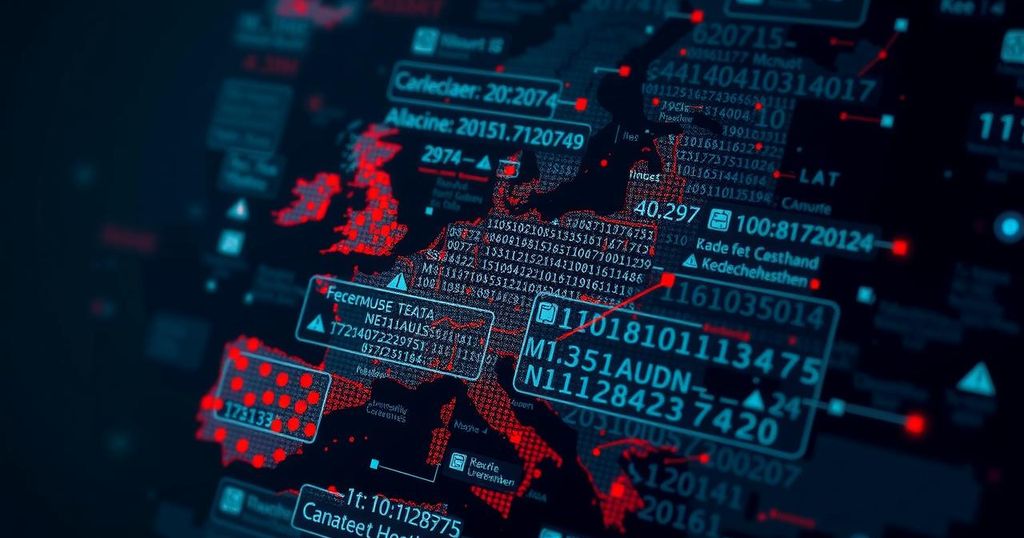Host Europe and the Lower Saxony Criminal Police Office have issued warnings about a substantial phishing campaign that targets Host Europe clients. The fraudulent emails closely resemble legitimate communications, potentially leading unsuspecting customers to wrongful actions. These emails may contain real data, suggesting a significant risk of deception. Authorities emphasize the importance of high vigilance and caution when evaluating email communications from unknown sources.
Host Europe and the Lower Saxony Criminal Police Office have issued warnings concerning a significant phishing campaign targeting customers of Host Europe. Fraudulent emails that closely imitate the legitimate communications from Host Europe are circulating, posing a risk of deception for unsuspecting recipients. The Lower Saxony Criminal Police Office elaborated on this issue in a recent statement posted on the police prevention portal, emphasizing that the phishing emails bear a strong resemblance to Host Europe’s authentic messages. Recipients who do not scrutinize these emails closely might easily be misled into believing their legitimacy, thereby falling into the trap of online fraudsters. These fraudulent emails utilize real data, although the source of this information remains uncertain. Reports indicate that the domain names targeted were accurately represented, and any valid domains would comply with the RFC standards that govern the Internet’s infrastructure. The emails claim that there are outstanding invoices, warning that failure to remit payment will result in the immediate deletion of both the domain and its associated content. The Lower Saxony Criminal Police Office has noted that the cybercriminals often send multiple related emails, referencing previous phishing attempts and sometimes offering a restoration service. A common feature among these fraudulent emails is the inclusion of a fictitious invoice number: 33250304, alongside a subject line reading “Urgent Payment Reminder – Invoice 44250304.” Furthermore, the communication lacks personalized salutation, merely addressing the recipient by their email address. Although the sender’s name appears as “Host Europe – Invoice – NoReply,” the actual email address is linked to obscure domains that are not affiliated with Host Europe, which is a key indicator of falsification. The links supplied within the emails direct recipients to phishing websites that do not correspond with the displayed URLs but rather connect to unrelated domains. These fraudulent sites prominently feature a small Host-Europe logo positioned above a form requesting credit card information. Upon entering their details, individuals receive a message indicating “3D Secure Loading Transactions,” but thereafter, no further actions occur. It is unclear whether the perpetrators are experiencing a malfunction or are simply capturing complete card details for later misuse. Consumers face uncertainty regarding whether subsequent transactions would include minimal yet discreet charges, commonly around €13, or whether their financial information will be exploited for online purchases. Host Europe has also published warnings on their corporate website regarding these phishing emails, advising customers not to submit these communications as they currently possess sufficient examples. When receiving such phishing emails, both LKA Niedersachsen and Host Europe urge recipients to refrain from clicking on any links.
Phishing remains a prevalent method utilized by cybercriminals to exploit unsuspecting online users. Hosting companies frequently become prime targets due to the sensitive information they manage for their clients. The nature of the current phishing scheme aimed at Host Europe customers is particularly alarming as it employs legitimate-sounding details to gain the trust of potential victims. The reported instances of fraud are indicative of the broader trends observed within cybersecurity, where increasingly sophisticated tactics are employed to deceive even cautious internet users.
In summary, the phishing campaign identified by Host Europe and the Lower Saxony Criminal Police Office underscores the urgent need for vigilance among internet users. By recognizing the signs of deceptive emails and adhering to safety protocols, individuals can safeguard their personal and financial information against cybercriminal activities. Education on identifying phishing attempts remains a crucial element in the fight against such forms of online fraud.
Original Source: www.heise.de

Leave a Reply